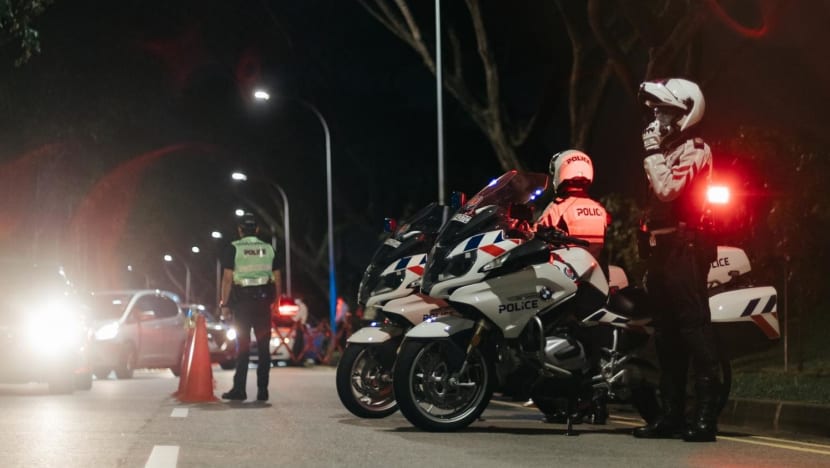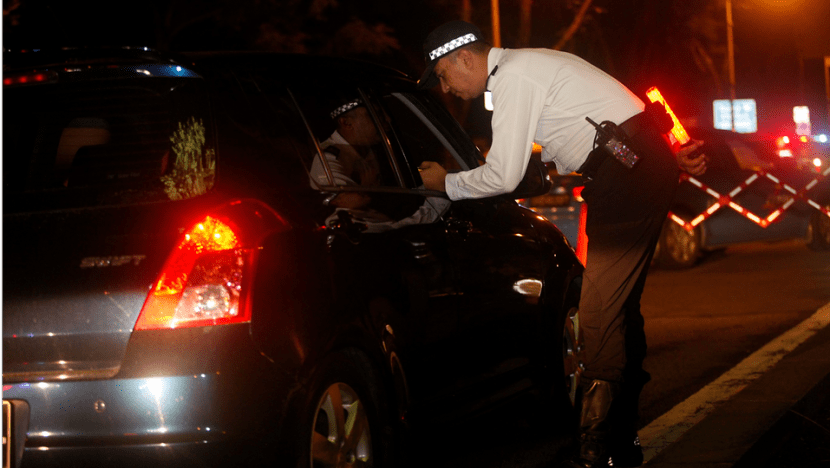Removing mandatory sentences for first-time offenders among proposed changes to Singapore's road traffic laws
The changes are necessary to strike a balance between deterrence and proportionality, says the Home Affairs Ministry.


This audio is generated by an AI tool.
SINGAPORE: The courts could soon have greater discretion to impose appropriate sentences for driving offences, if amendments to traffic laws are passed.
The Road Traffic (Miscellaneous Amendments) Bill was introduced in parliament on Monday (Nov 11) by Minister of State for Home Affairs Muhammad Faishal Ibrahim.
Proposed changes include removing the mandatory minimum sentence and disqualification period for first-time dangerous or careless driving offenders.
The mandatory minimum sentence for repeat offenders will also be lowered. For those causing death, it will be reduced from four years to two years, while for those causing grievous hurt, it will be cut from two years to one.
This includes, for instance, an accident where other road users involved exhibited irresponsible or risk-taking behaviour, and thus bore some responsibility.
No changes will be made to the maximum penalties for these offences, which were last raised in 2019. First-time offenders convicted of dangerous driving causing death face two to eight years' jail, while repeat offenders face up to 15 years.
The mandatory minimum penalties will also remain unchanged for those who drive under the influence of alcohol or drugs. Such offenders also face additional penalties, depending on the severity of the injury.
The amendments to the law will "recalibrate the balance" between deterrence and proportionality for road traffic offences, said the Ministry of Home Affairs (MHA) in a press release.
This gives the courts greater discretion on sentencing and the prosecution flexibility to press charges depending on the circumstances of the offence, the ministry added.
For example, the prosecution can proceed on a “hurt” charge even where “grievous hurt” was factually caused, taking into account factors such as the nature of the injury caused.
The Home Affairs Ministry said it regularly reviews the laws to ensure they remain effective. During the last review of road traffic offences in 2019, criminal penalties were increased for some offences.
It said the proposed changes “ensure that relatively less egregious behaviour is not overly penalised, whilst still retaining the powers to heavily penalise egregious offenders”.
The ministry gave an example of a case that shows how the current law restricts the courts from imposing a lower sentence in less egregious cases.
A taxi driver failed to conform to a red traffic light signal at a T-junction in Bukit Batok West and collided into an oncoming car which had the right of way. The victim in the car suffered injuries such as neck and shoulder pain and numbness in half of his body, and was on medical leave for 25 days. He subsequently made a full recovery.
"While this is considered 'grevious hurt' due to the victim receiving at least 20 days of medical leave, the overall injury was not severe based on the injury report and the victim's full recovery," said MHA.
If the taxi driver had been convicted of dangerous driving causing grevious hurt, he would have been subject to a mandatory minimum jail term of one year and a mandatory minimum disqualification order of eight years.
With the proposed changes to the law, if convicted for the same offence, these would not apply. The courts would consider the circumstances of the cases and determine an appropriate sentence, MHA said.
REPEAT OFFENDERS
The Bill also changes the definition of a repeat speeding offender. Under current laws, a motorist is considered a repeat offender if he has been convicted before of dangerous or careless driving, conducting illegal speed trials or speeding.
Repeat offenders get significantly heavier penalties, such as mandatory minimum sentences in cases where grievous hurt or death is caused.
With the amendments, he will only be charged as a repeat offender for speeding if he had at least two prior convictions, both exceeding the speed limit by at least 40kmh, and if the two convictions occurred within the past five years.
This does not affect how offences in other categories are taken into consideration, MHA said.
A motorist will still be charged as a repeat offender if there is any prior conviction of dangerous driving, careless driving or conducting illegal speed trials.
“This will also not affect the courts’ discretion to impose a higher sentence in cases where a motorist’s speeding record is an aggravating factor for the current dangerous or careless driving offence,” the ministry added.

OTHER AMENDMENTS TO THE LAW
If passed, the Bill will empower immigration officers to administer breathalyser tests at the border checkpoints and their vicinity.
This enables the Immigration and Checkpoints Authority to carry out their security functions at the land and sea checkpoints, which they have taken over from the police, MHA said.
Driving disqualification periods meted out under the Road Traffic Act and the Motor Vehicles (Third-Party Risks and Compensation) Act will also be streamlined.
If the offender is imprisoned for an offence, the disqualification period will commence from the completion of the sentence.
If the offender has an existing disqualification order and is jailed for any offence, the order will be suspended until after the date of release.
For offenders who do not have jail terms, the disqualification period will start from the date of conviction.
The Bill will also amend the Road Traffic Act to incentivise owners to collect their seized vehicles in a timely manner and streamline the subsequent disposal process.


















